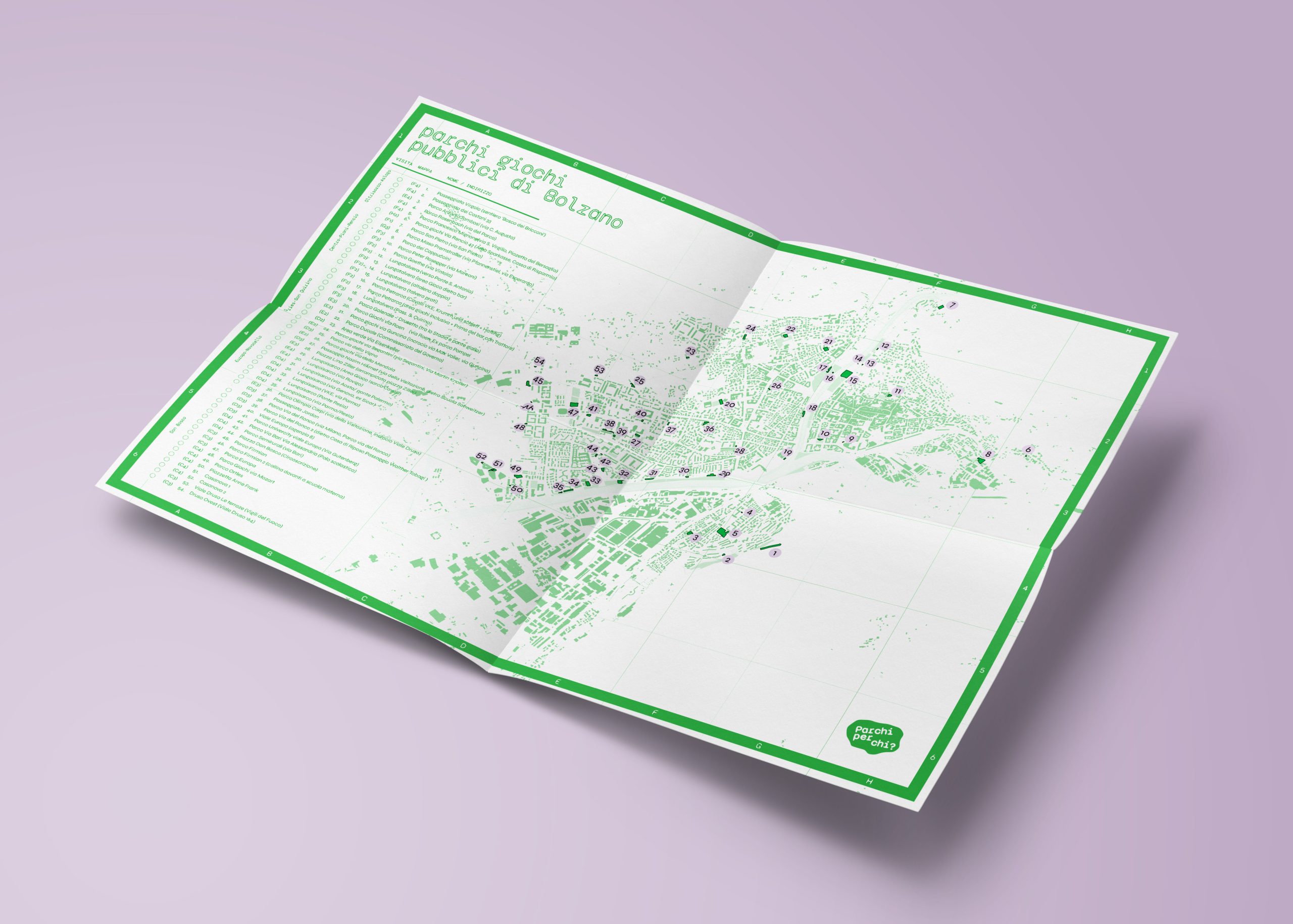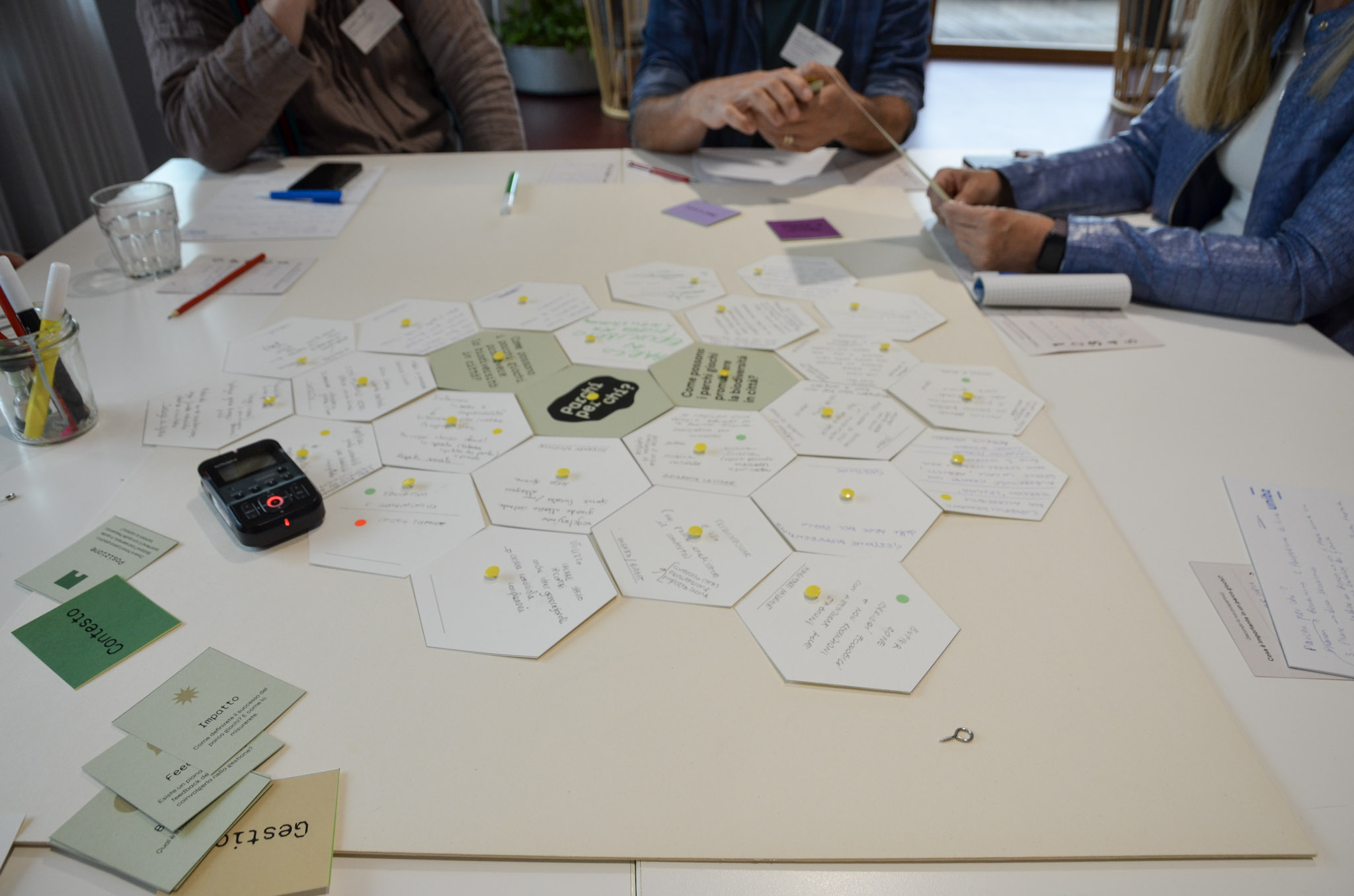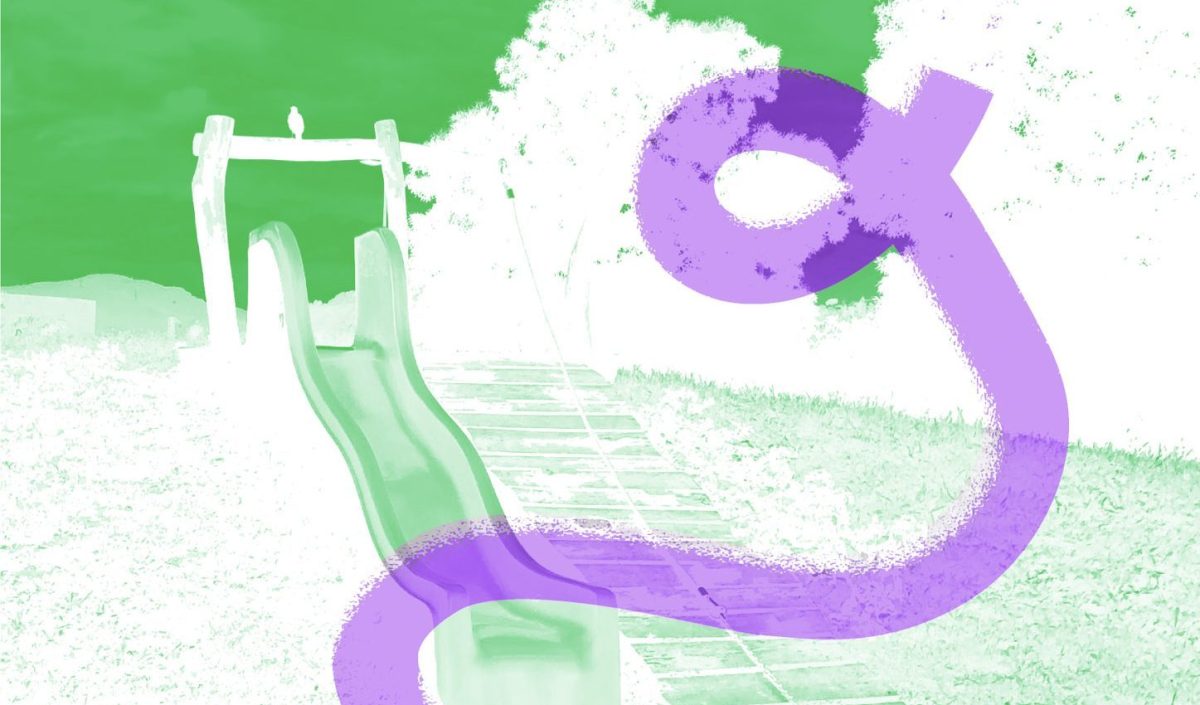From the outset, this project asks how playgrounds might provide an opportunity to bring biodiversity to urban environments. Urbanization and related phenomena, such as changes in land use, the subsequent fragmentation of natural habitats and the degradation of ecosystems more generally, severely threaten biological diversity in urban environments. At the same time, lack of human contact with nature has physical and mental health consequences. Thus, while natural habitats become exposed to human activity’s adverse effects, there is a growing need to rethink how urban spaces support human-biodiversity interaction. Developed in collaboration with citizens of Bozen-Bolzano, the project will ideate and prototype future visions of outdoor play spaces that can act as vehicles for a more-than-human understanding of urban environments. As a participatory design project, it will draw key stakeholders, such as schools, children, their caretakers, and the local municipality, toward the topic and ultimately develop an awareness of the importance of reintegrating biodiversity into city life. Methodologically, the project will test how design-led research might promote curiosity regarding local flora and fauna by connecting children, biodiversity, and play. Located in Bozen-Bolzano, Playground will draw on the unique characteristics of the city’s landscape and its potential for nature restoration.
The project consists of 3 Phases – Phase 1 investigates the eco-social qualities (or lack thereof) of public playgrounds of Bozen-Bolzano by surveying parents’/guardians’ perceptions of local playgrounds. Phase 2 explores children’s understanding and values regarding the role of nature within play spaces such as playgrounds. Phase 3 focuses on the role of design research in mediating and promoting a debate among stakeholders concerning the design of playgrounds in Bozen-Bolzano. The focus is on promoting biodiversity in urban environments via playground design.
Phase 1 investigates the eco-social qualities (or lack thereof) of public playgrounds of Bozen-Bolzano
Mapping the public playgrounds became an essential step for the first part of the project. As a result, we created a map that lists and locates all of them in the city. This tool serves as a checklist for assessing the eco-social qualities of the playgrounds.

We developed a printed survey and mailbox backpack for field research in the different public playgrounds of Bolzano. The anonymous survey included 17 questions to understand better parents’/guardians’ perceptions of local playgrounds.
Phase 2 explores children’s understanding and values regarding the role of nature within play spaces such as playgrounds.
For the project’s second phase, we carried out a series of workshops whereby we ideate and prototype future visions of outdoor play with children to better understand how they imagine playing in playgrounds and how and if nature is part of their design- thinking process. We provided different materials for their prototypes, including natural elements and reused and synthetic materials. Then, they had to explain their prototype: how it could be played and by whom.

The kids had to place their creations on a collective board, deciding together
the playground’s main idea and distribution. They could add new materials and components (hills, paths, doors, etc). We had a final moment to reflect on how their playground is similar or different from the ones they have played on.
We analysed the data resulting from children’s descriptions of their playgrounds using thematic analysis with the view of better understanding what types of play they privilege and if and how nature features in their concept of ‘playground’
Phase 3 focuses on the role of design research in mediating and promoting a debate among stakeholders concerning the design of playgrounds in Bozen-Bolzano.
The project’s final phase involved conducting design research to mediate and promote a stakeholder debate on playground design in Bolzano. We organised a transdisciplinary workshop where we first presented the results from our ecological and social assessment of Bolzano’s public playgrounds (phase 1) and the perspectives shared by children through participatory workshops (phase 2).

During the practical part of the stakeholders’ workshop, we discussed the challenges and opportunities of promoting biodiversity in Bolzano’s playgrounds through a participatory methodology. The variety of disciplines represented by the participants led to a rich debate on feasibility and the necessary compromises.
The research project is funded by Unibz’s internal start-up grant in the scientific-disciplinary sector ICAR/13 (Industrial Design) at the Faculty of Design and Art.
Principal Investigator: Tenured associate professor unibz, Sónia Matos
Research Team: Nicole Faiella Perdomo, Teresa Palmieri, Jacopo Ammendola.
Research Cluster: trans–form – Design, art and social practices for political and eco-social transition / Timespan: 2023 – Ongoing
